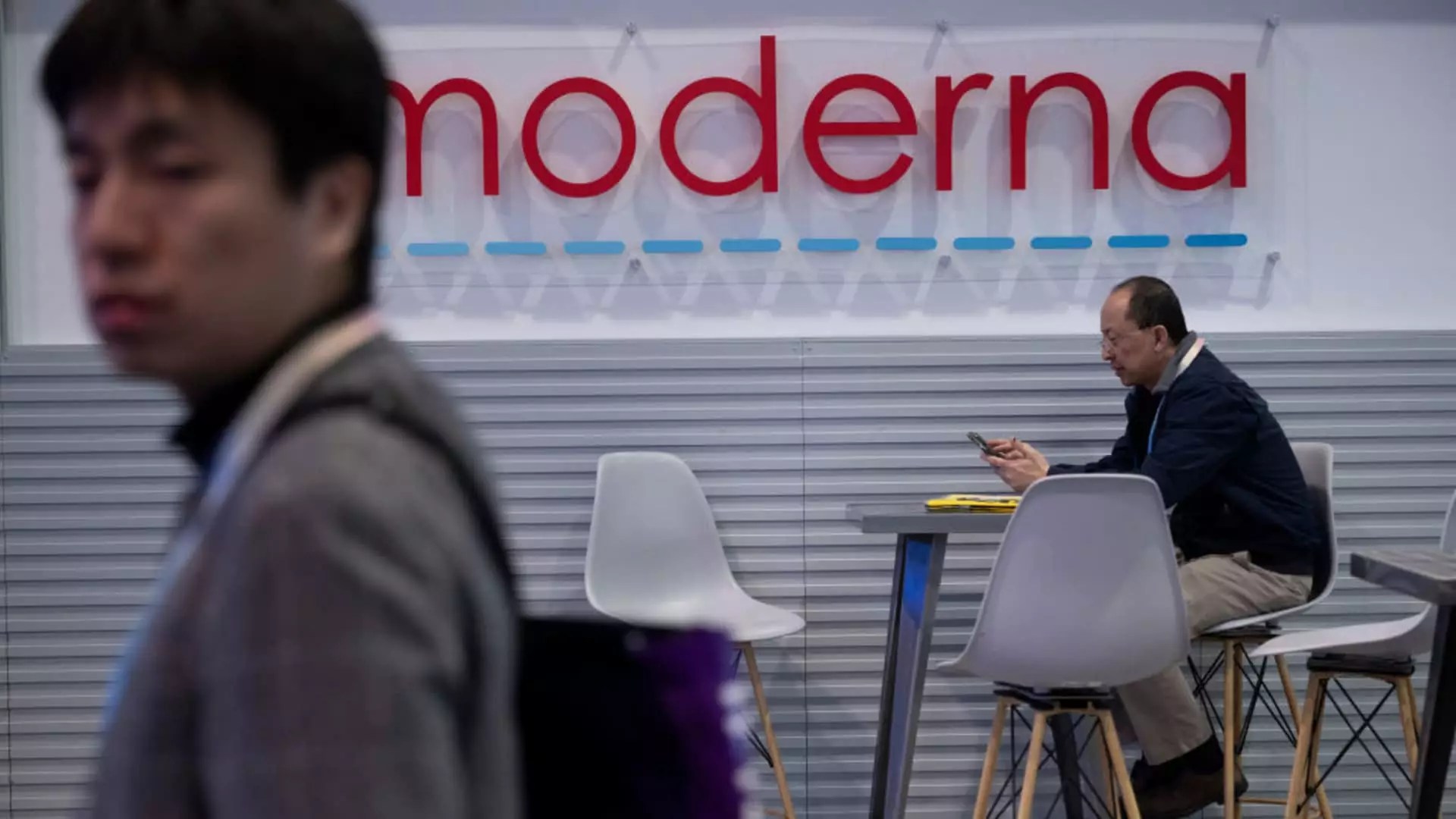On Monday, biotech giant Moderna Inc. made a dramatic revision to its sales projections for 2025, reducing estimates by approximately $1 billion. The new revenue forecast now sits between $1.5 billion and $2.5 billion, marking a significant pivot from previous expectations set in September, where the range was projected to be between $2.5 billion and $3.5 billion. This decision reflects a strategic recalibration by the company, acknowledging potential market headwinds as it seeks to expand its product offerings while also implementing cost-reduction strategies.
The revised outlook highlights notable uncertainties, particularly regarding Moderna’s COVID-19 vaccine, which until recently was the company’s flagship product. Chief Financial Officer Jamey Mock cited several critical factors contributing to this outlook. Among them is the intensifying competition in the COVID-19 vaccine market, which has seen Moderna’s market share drop from 48% in 2023 to approximately 40% by the end of 2024. Notably, the co-commercialization of Novavax’s vaccine by Sanofi could further exacerbate the competitive landscape, complicating Moderna’s position.
Another pressing concern is the general decline in vaccination rates, with the U.S. retail market witnessing a 7% drop in this segment as of Fall 2024 compared to the previous year. This trend can significantly affect sales, especially for a company heavily reliant on pandemic-related vaccines. Manufacturing contract uncertainties with various nations further complicate matters, along with unpredictability surrounding vaccination recommendations for Respiratory Syncytial Virus (RSV). Understanding the impact these factors may have on financial forecasts can help investors gauge the company’s potential for recovery.
In light of these challenges, Moderna is focused on prudent financial management to preserve cash flow and mitigate risks. The company’s expectation to cut cash costs by $1 billion in 2025 reflects a commitment to streamlined operations while still striving for innovation. Moreover, preparations for additional cost reductions of $500 million in 2026 suggest an overarching strategy aimed at adjusting its framework to align more closely with the current market dynamics. Such proactive measures indicate that while Moderna anticipates difficulties, it is positioning itself to maintain resilience in uncertain times.
Despite the current adversities, Moderna remains optimistic about its product pipeline. The firm aims for ten new product approvals over the next three years, showcasing its commitment to innovation in the rapidly evolving biotech landscape. Future offerings may include combination vaccines targeting both COVID-19 and influenza, as well as advanced versions of the COVID-19 vaccine itself. Interestingly, Moderna could see three approvals in the significantly challenging year of 2025 alone, a move that would signal strength amid ongoing market pressures.
This ambitious product strategy leans heavily on Moderna’s foundational messenger RNA (mRNA) technology, which has already proven effective in its COVID-19 vaccine and the newly launched RSV vaccine. By diversifying its portfolio and enhancing offerings, Moderna seeks to secure a stable future and return to robust revenue streams post-pandemic.
The immediate market response to the revised guidance was notably negative, with Moderna’s shares plummeting by 20% on opening, suggesting heightened investor concern over the company’s future prospects. Other vaccine developers, such as Novavax and BioNTech, experienced dips as well, reflecting a broader apprehension about the sector’s potential profitability going forward. This shift in investor sentiment underscores the necessity for management to communicate a clear and credible path toward recovery.
As Moderna endeavors to navigate these multifaceted challenges while expanding its product offerings, it faces a pivotal moment in its trajectory. Properly addressing competition, fluctuating demand, and operational costs will be paramount in the months ahead. With innovative strategies anchored in its mRNA technology, Moderna may yet chart a resilient path forward, beneficial not only for its stakeholders but importantly for public health concerns it aims to address. The healthcare landscape remains dynamic, and how Moderna adapts in the coming years will determine its standing in this transformative industry.


Leave a Reply